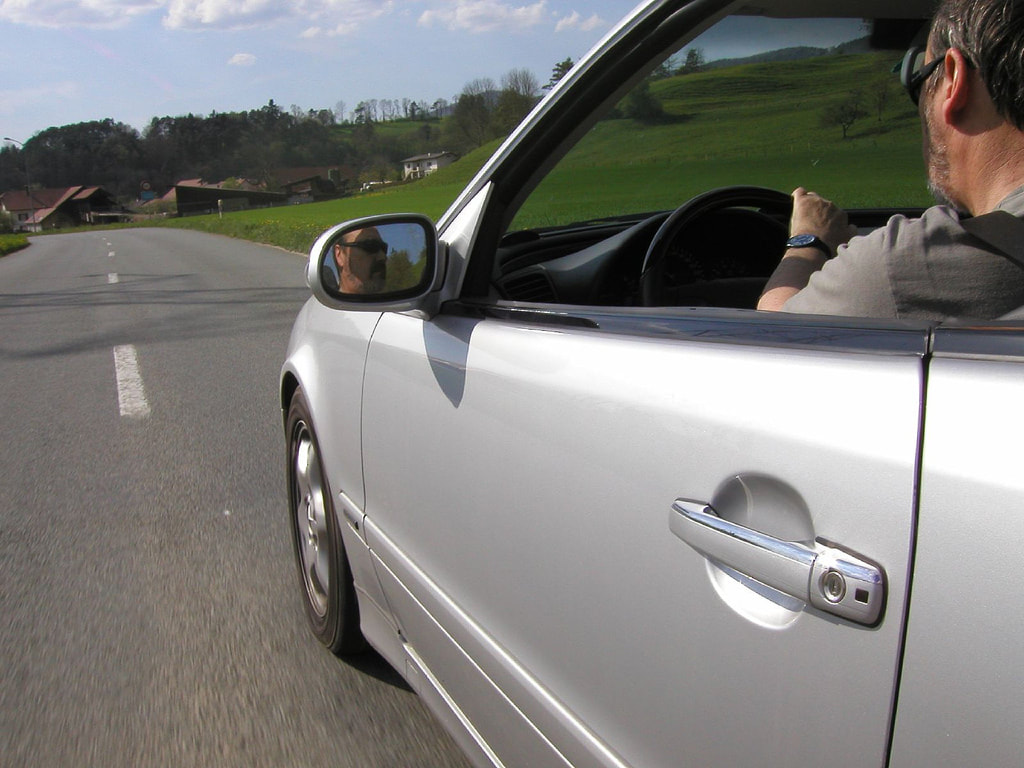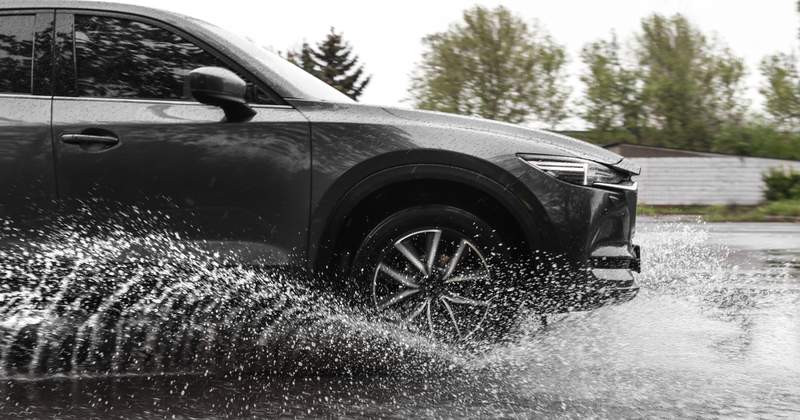J Wood Insurance Blog
|
|
Maybe you’ve been here before. You’ve just come off the plane in Ga, picked up your baggage and gone to the rental car counter. You’re tired from the flight, about to begin an ambitious vacation or a challenging business project. And, this is the point at which you’re asked, “Do you want insurance with that?”
Most travelers, facing that question from the rental representative, have the vague notion that they don’t really need to buy rental car insurance in Ga – which somehow is covered already. With just enough doubt in their minds, and the need to make a quick decision, perhaps they buy it just to be safe. So, which is it? Do you need to buy rental car insurance in Ga or not? Truth be told, there isn’t a one-size-fits-all answer. However, you can likely reach a conclusion you’re comfortable with by considering these three questions. 1. What Types of Rental Car Insurance Are Available? Typically, car rental agencies will offer you four types of insurance to purchase:
Start with your personal auto insurance in Ga. It’s likely that your policy will provide the same level of coverage for your rental as it does for your own car. That usually includes liability insurance, and, depending on the policy you purchased, may include collision, comprehensive and medical payments, too. There are exclusions, however. Some insurers won’t cover rentals in a foreign country, or rentals that are being used for business. Get in touch with your independent insurance agent in Ga to verify your coverages. Next there’s your credit card. Most cards offer some degree of coverage, but it varies widely. Coverage is usually secondary, designed to step in and pick up where your auto insurance leaves off, and it tends to be mostly confined to collision, damage and theft. For coverage to apply, most cards require that you decline the rental company’s collision damage waiver and pay for the car in full with the card that provides the protection. Again, contact your card company to find out exactly what is covered. Then, consider your health and life insurance, too. If you’re in an accident involving a rental car and you have these policies, you likely have coverage for your own costs. Plus, with your homeowners insurance, you may have personal property coverage to help repair or replace valuable belongings that are lost, damaged or stolen while you’re in a rental. Your deductible and policy limits will apply, and the same goes for renters insurance or condo insurance. 3. What Rental Coverage Might I Be Missing? In the event something does happen to the rental car, you may be looking at loss of use and diminished value fees, and your regular policy may not cover them. Loss of use is the income that the rental agency loses due to the vehicle being in the shop for repairs, and diminished value is the calculated reduction in a vehicle’s resale value as the result of an accident. Credit cards sometimes cover these, but be aware that they may require documentation that rental agencies can be reluctant to provide. So, before you make that next trip, give us a call and check with your credit card company. That way you’ll be ready to make an informed decision when you get to the rental car counter. Reposted with permission from the original author, Safeco Insurance®. Top image by Flickr user Timo Newton-Syms used under Creative Commons Attribution-Sharealike 2.0 license. Image cropped and modified from original.
0 Comments
Your dashboard is filled with icons and alerts that can tell you when your vehicle needs attention. Some of these notifications are more serious than others, but it’s a good idea to know what they all mean.
But your dashboard isn’t the only way to tell if something is wrong. Sometimes you need to rely on your senses, which is why it’s also important to listen to the sounds your vehicle makes. Have you noticed any clunking, grinding or high-pitched squealing lately? Here’s what some of these odd noises might mean.
These warning noises may help you diagnose the problem, but this list is by no means comprehensive. If you hear something unusual, always ask a trusted mechanic as soon as possible. Ignoring a strange sound can mean more expensive repairs down the road. Have questions about your coverage? Reach out anytime. Maybe you’ve heard that people who drive red cars get pulled over more, so insurers charge them higher rates. Or that if you let someone else drive your car, their policy will cover an accident.
Well, when it comes to auto insurance, you shouldn’t always believe what you hear. Get the facts about common car insurance myths, and reach out to make sure you have the coverage you need. Myth #1: A ticket automatically increases your rate. A moving violation doesn't have to increase your insurance rate unless it's a frequent occurrence. You may be able to take a driving course to maintain your rate and even pay less for your ticket. Myth #2: Car color affects your insurance rate. The truth is that the color of your vehicle most likely doesn’t affect your premiums. However, there are special cases where color can raise the value of your car — like a custom paint job — which could potentially increase your rates. Myth #3: Older cars need less coverage. If you don't have a loan on your car, you may not have to carry comprehensive and collision coverage, only the liability coverage required by the state. But you may not want to drop or lower your optional coverage if your car still has significant value, as it would be pricey to repair or replace. Myth #4: Someone borrowing your vehicle is covered by their own insurance. Laws vary by state, but usually the insurance covers the vehicle. Before you drive someone else's car, verify that it's insured. Don't assume that your own policy will cover an accident. Myth #5: You only need the auto liability insurance that's required by law. It's smart to buy more than the minimum, because personal liability for an at-fault auto accident can be expensive. Adding a personal umbrella policy for additional coverage can be a wise decision, especially when you have assets to protect. Get in touch today with any questions you have about your policy. If you ever needed to evacuate or shelter in place, would you be prepared?
You can't always predict things like severe weather or power outages. But you can prepare for the unexpected by packing a home emergency kit for you and your family. Review this list of must-have items, then get in touch to make sure your home has enough coverage to bring you peace of mind.
Reach out if you have questions about what's covered in your policy or anything else. Do you know how damaging potholes can be?
Unfortunately, this common road hazard can potentially send your vehicle to the repair shop. Here’s what to know if you ever find yourself dealing with pothole problems. Plus: Find out how you might be able to avoid them in the first place. What kind of damage can a bad pothole cause?
Your policy may cover pothole damage, but such a claim is likely to be considered a single-car accident, which means the fault gets assigned to you. Having an at-fault accident on your record could cause your rates to go up. Before you file a claim, check your deductible to see if the cost of repair will exceed your out-of-pocket amount. If not, there’s no benefit to filing a claim. Not sure what to do? Reach out to us for help weighing your options. How can you avoid pothole damage? Pothole season may be unavoidable, but that doesn’t mean potholes themselves can’t be avoided. Here are a few tips for preventing pothole damage:
Unfortunately, car break-ins happen, but you can take steps to minimize your risk and keep your vehicle and belongings safe.
By taking a few minutes to review these tips now, you could avoid the hassle of repairing (or replacing) your car later. Here are 10 smart ways to keep your vehicle safe from theft. Don’t Make a Break-In Easy
If you’re the victim of a vehicle break-in or theft, take photos of the damage, file a police report and reach out for help filing an insurance claim. We can also help you be more proactive. Get in touch to learn about additional coverage for your vehicle or home. The spring season calls for refreshing and maintaining your most lived-in spaces, including your home and car.
Taking care of basic maintenance tasks can also help you avoid dealing with expensive repairs in the future. In other words, now is the perfect time to make sure your property is in tiptop shape. Here are six essential car and home tasks to have on your radar. Car Maintenance First, check your vehicle's service schedule. That way, you'll know when and how often your car needs certain repairs, including:
Do you want to avoid expensive home repairs in the future? Here's what the experts suggest.
Do you know what’s covered by your homeowners policy? Or that you can purchase additional coverage for more protection?
Even if your current policy meets your needs, it’s always a good idea to learn about your options, especially as we start a new year. Here’s what you should know about standard homeowners insurance (and when you might need to supplement it). What does standard homeowners insurance cover?
Do you need additional coverage? Every home is different, which is why it’s important to carefully review your options to make sure you’re considering your property’s unique needs. Your policy may not cover:
Do you have any questions? Or are you ready to check in about your 2022 coverage needs? Get in touch today. Let's face it: Buying a car has never been easy.
If you're looking for a better way to shop for a new vehicle, you'll want to learn about recent trends in car-buying that may be changing the market for good. Here's what to know about today's hot car market and what these changes can mean for your auto insurance policy. 3 Car-Buying Trends to Know 1. There's a chip shortage. Computer chips, wiring harnesses, plastics and glass are in short supply — and some experts expect this shortage to continue through 2022. Prices may continue to be high because of the reduced supply in new vehicles. 2. Used cars are in high demand. With fewer new cars available, used vehicles are becoming more popular. Prepare for a competitive market: You may have to search longer, pay more and make faster buying decisions compared to a couple years ago. If you have good credit, low-rate financing can help alleviate sticker shock. 3. It may be easier to buy a car online. Online car sellers can spare you a trip to a dealership. Car vendors are increasingly offering to let you view detailed photos, make a purchase and fill out car-buying paperwork online. Some sellers even offer fixed prices, so there's no stressful negotiation process or uncertainty about what you'll pay. You may even be able to have your new car delivered to your home. What does this mean for your auto insurance? Since most cars are more expensive now, there's a possibility that your premiums could be a bit higher. Also, if you buy a car and already have auto insurance, you’ll have a short grace period to add your new vehicle to your policy. Reach out anytime to update your coverage, ask questions about your insurance or discuss anything else. Actual cash value or ACV is way of valuing your property after a claim. Your insurance company will calculate the value of your property when it was new and depreciate the value based on its age.
Replacement cost is self explanatory. Simply put, the insurance company will give you the amount of money it takes to replace your property. While replacement cost is often more expensive than ACV, we strongly suggest that you select this coverage. |
Contact Us(770) 322-4390 Archives
May 2023
Categories |
Providing home, auto, life, and business/commercial insurance in McDonough Ga, Locust Grove Ga, and all of Georgia.
Navigation |
Connect With UsShare This Page |
Contact Us |
Location |
McDonough Historic District, McDonough, GA, US photo by Bubba73 | CC-BY-SA-3.0 | Website by InsuranceSplash









 RSS Feed
RSS Feed